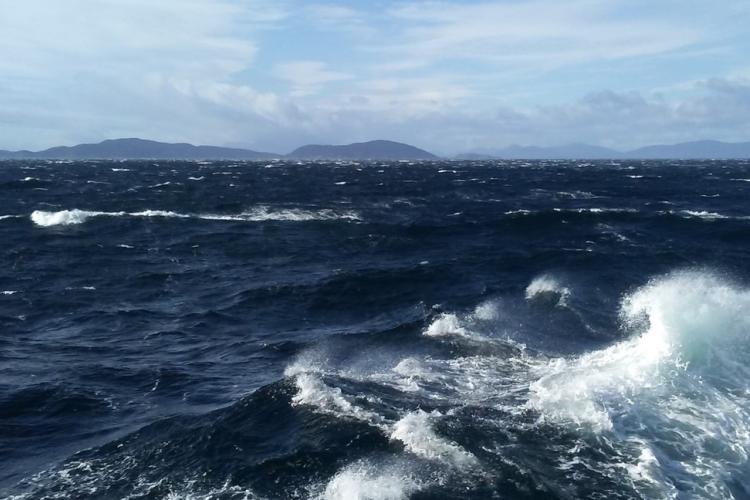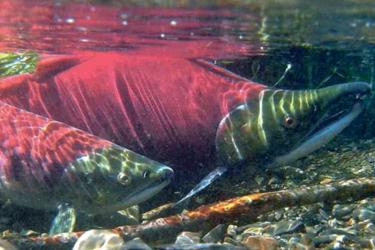We conduct ecosystem and fisheries oceanographic research in the Gulf of Alaska in support of the NOAA Fisheries mission. The scientific approach is threefold, integrating field studies, laboratory studies, and modeling to better understand ecosystem dynamics and recruitment processes of commercially-important species in this large marine ecosystem. The program started in the 1970s with a focus on walleye pollock in Shelikof Strait, studying how physical and biological conditions affected the survival, growth and distribution of early life stages and subsequent recruitment into the fishery. The program now works across species and trophic levels to improve understanding of ecosystem dynamics in support of Ecosystem-Based Fisheries Management.
Field research in the Gulf of Alaska includes spring surveys to sample larval fish and their zooplankton prey, and late-summer surveys to assess the abundance and condition of small neritic fish, including juvenile pollock, prior to the onset of winter. Concurrent oceanographic measurements are taken during all surveys to provide information on primary production, nutrient cycling, and physical conditions like temperature and salinity. Field surveys are supplemented by process studies, laboratory investigations (diets, growth, energetics), and modeling to provide a comprehensive assessment of the oceanographic and lower-trophic level conditions in the Gulf of Alaska.
The overall goals of our research in the Gulf of Alaska are to advance our understanding of the mechanisms that control fish survival and recruitment, to improve our ability to make forecasts of ecosystem conditions under varying climate conditions, and to provide timely information to fisheries managers, stakeholders, and the public in support of healthy and sustainable fisheries.
Contact
Lauren Rogers, Research Fisheries Biologist
Recruitment Processes Program, Research Assessment and Conservation Engineering

